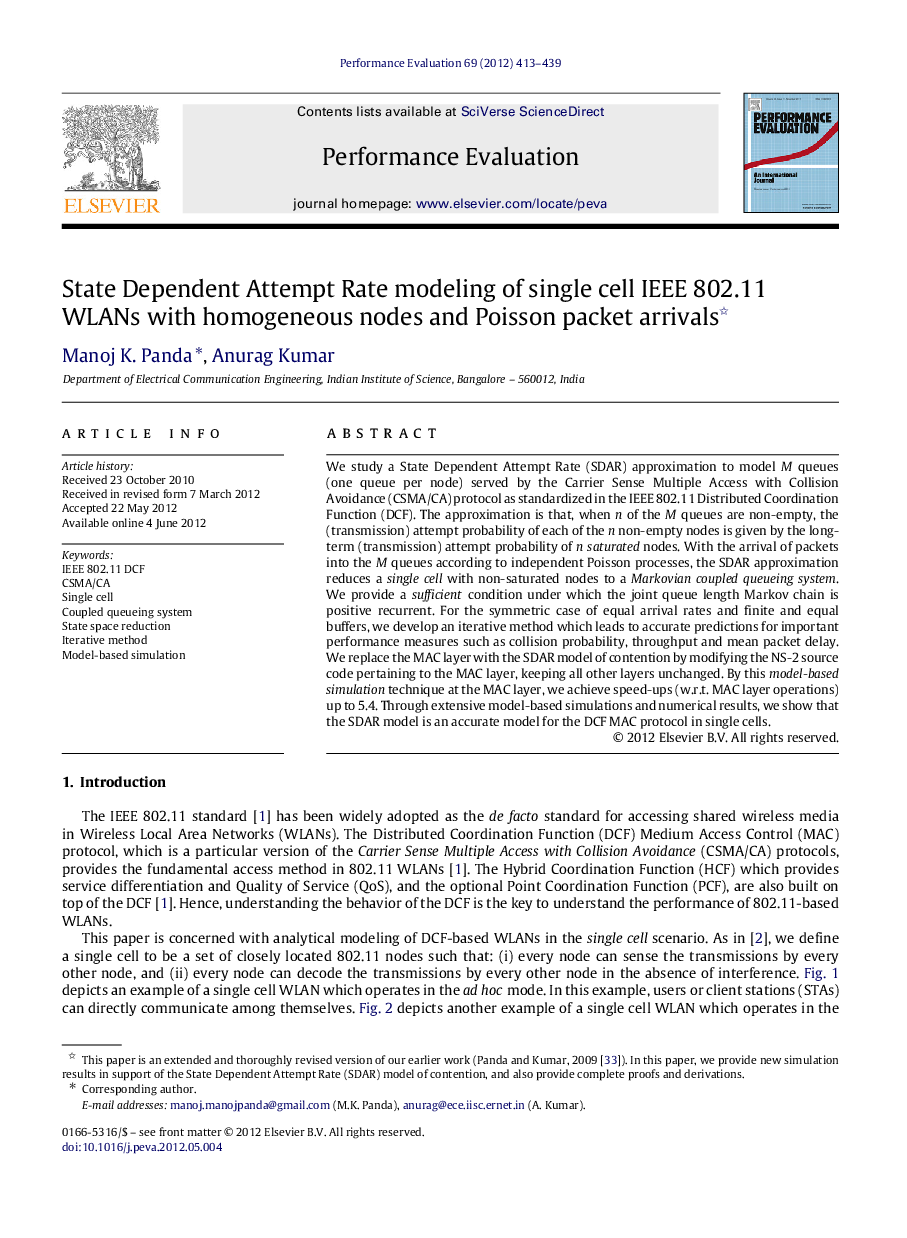| کد مقاله | کد نشریه | سال انتشار | مقاله انگلیسی | نسخه تمام متن |
|---|---|---|---|---|
| 463177 | 696973 | 2012 | 27 صفحه PDF | دانلود رایگان |

We study a State Dependent Attempt Rate (SDAR) approximation to model MM queues (one queue per node) served by the Carrier Sense Multiple Access with Collision Avoidance (CSMA/CA) protocol as standardized in the IEEE 802.11 Distributed Coordination Function (DCF). The approximation is that, when nn of the MM queues are non-empty, the (transmission) attempt probability of each of the nn non-empty nodes is given by the long-term (transmission) attempt probability of nnsaturated nodes. With the arrival of packets into the MM queues according to independent Poisson processes, the SDAR approximation reduces a single cell with non-saturated nodes to a Markovian coupled queueing system. We provide a sufficient condition under which the joint queue length Markov chain is positive recurrent. For the symmetric case of equal arrival rates and finite and equal buffers, we develop an iterative method which leads to accurate predictions for important performance measures such as collision probability, throughput and mean packet delay. We replace the MAC layer with the SDAR model of contention by modifying the NS-2 source code pertaining to the MAC layer, keeping all other layers unchanged. By this model-based simulation technique at the MAC layer, we achieve speed-ups (w.r.t. MAC layer operations) up to 5.4. Through extensive model-based simulations and numerical results, we show that the SDAR model is an accurate model for the DCF MAC protocol in single cells.
Journal: Performance Evaluation - Volume 69, Issue 9, September 2012, Pages 413–439